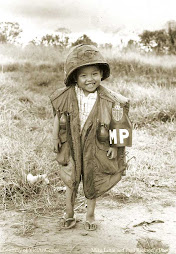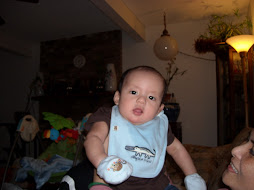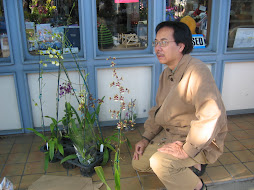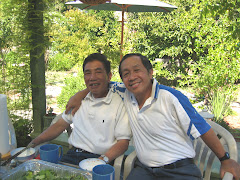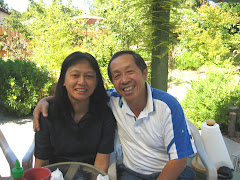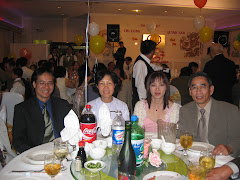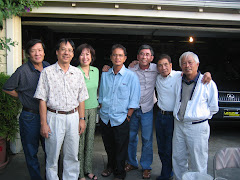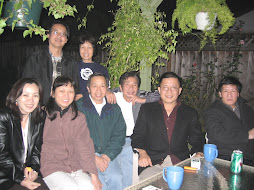Friday, November 7, 2008
HÀ LỘI MÙA NÀY
Hà Nội mùa này phố cũng như sông
Cái rét đầu đông, chân em run ngâm trong nước lạnh
Hoa sữa thôi rơi, em tôi bơi cả chiều trên phố
Đường Cổ Ngư xưa, ngập tràn nước sông Hồng...
Hà Nội mùa này chiều không có nắng
Phố vắng nước lên thành con sông
Quán cóc nước dâng ngập qua mông
Hồ Tây, giờ không thấy bờ...
Hà Nội mùa này lòng bao đau đớn
Ta nhớ đêm nao lạnh đôi tay
Cho đến đêm qua lạnh đôi chân
Giờ đây, lạnh luôn toàn thân.
Hà Nội mùa này phố cũng như sông
Cái rét đầu đông, chân em thâm vì ngâm nước lạnh
Hoa sữa thôi rơi, em tôi bơi cả chiều trên phố
Đường Cổ Ngư xưa, ngập tràn nước sông Hồng...
Hà nội mùa này người đi đơm cá
Phố vắng nước lên thành con sông
Quán cóc nước dâng ngập qua mông
Hồ Tây, tràn ra Mỹ Đình
Hà Nội mùa này lòng bao đau đớn
Ta nhớ đêm nao lạnh đôi tay
Cho đến đêm qua lạnh đôi chân
Giờ đây, lạnh luôn toàn thân

EO ƠI HÀ LỘI PHỐ

Nhạc: PHÚ QUANG
Lời: TS RÂU
Tặng những ai yêu Hà Lội và nhớ về cơn mưa lũ, ghét quá!
Em ơi Hà Lội phố
Ta còn em vì kẹt xe. Ta còn em vì nước lũ.
Con đường vắng ào ào cơn mưa đổ,
Em đứng chờ ai, đến sửa xe dùm…
Ta còn em, cây bàng ngập ngang nửa thân
Ta còn em, mất guốc lội đi bằng chân…
Lội trong dòng sông vừa dâng, bùn dơ nhão nhoét
Nước bốn bề xe đi không nổi
Chưa tan chiều, sao mà kẹt đám đông ra ...?
Ta còn em, đầu phố đứng kêu ca
Nhìn từng đứa dắt xe qua, lao xao chửi thề
Người nghệ sỹ đói meo mò ra phố
Bỗng ước mình lại có được một con đò…!
Eo ơi Hà lội phố…
Em mà đi, còn kẹt mưa, Em còn đây, cùng rác rữa
Con đường lắm người chờ xe cứu hộ,
Em đứng gọi ai, mất điện giữa đường….
Ta còn em, áo quần bùn lấm tèm lem.
Bên nhà quen, góc phố người đứng nhìn xem
Nhìn xem dòng sông tràn lên, màu đen nước cống...
Tiếng tát chậu trong căn nhà ngập
Suốt con đường, vẫn còn kẹt cứng ôtô....
Ta còn em, một mình bên hàng hiên
Và từng bao rác trôi nghiêng, Nôn nao buồn miệng
Trời còn mưa, quanh em còn ngập nữa
Chợt chuột trôi về nổi da gà....
Eo ơi Hà lội phố…vẫn còn em, đội trời mưa
Cũng đành thôi, lội qua phố….!
Wednesday, November 5, 2008
A Good Story After the US Election

While walking down the street one day a **US** senator is tragically hit by a truck and dies.
His soul arrives in heaven and is met by St. Peter at the entrance.
'Welcome to heaven,' says St. Peter. 'Before you settle in, it seems there is a problem. We seldom see a high official around these parts, you see, so we're not sure what to do with you.'
'No problem, just let me in,' says the senator.
'Well, I'd like to, but I have orders from higher up. What we'll do is have you spend one day in hell and one in heaven. Then you can choose where to spend eternity.'
'Really, I've made up my mind. I want to be in heaven,' says the senator.
'I'm sorry, but we have our rules.'
And with that, St. Peter escorts him to the elevator and he goes down, down, down to hell. The doors open and he finds himself in the middle of a green golf course. In the distance is a clubhouse and standing in front of it are all his friends and other politicians who had worked with him.
Everyone is very happy and in evening dress. They run to greet him, shake his hand, and reminisce about the good times they had while getting rich at the expense of the people.
They play a friendly game of golf and then dine on lobster, caviar and champagne.
Also present is the devil, who really is a very friendly guy who has a good time dancing and telling jokes. They are having such a good time; that before he realizes it, it is time to go.
Everyone gives him a hearty farewell and waves while the elevator rises. The elevator goes up, up, up and the door reopens on heaven where St. Peter is waiting for him.
'Now it's time to visit heaven.'
So, 24 hours pass with the senator joining a group of contented souls moving from cloud to cloud, playing the harp and singing. They have a good time and, before he realizes it, the 24 hours have gone by and St. Peter returns.
'Well, then, you've spent a day in hell and another in heaven. Now choose your eternity.'
The senator reflects for a minute, then answers: 'Well, I would never have said it before, I mean heaven has been delightful, but I think I would be better off in hell.'
So St. Peter escorts him to the elevator and he goes down, down, down to hell.
Now the doors of the elevator open and he's in the middle of a barren land covered with waste and garbage.
He sees all his friends, dressed in rags, picking up the trash and putting it in black bags as more trash falls from above...
The devil comes over to him and puts his arm around his shoulder.
'I don't understand,' stammers the senator. 'Yesterday I was here and there was a golf course and clubhouse, and we ate lobster and caviar, drank champagne, and danced and had a great time. Now there's just a wasteland full of garbage and my friends look miserable. What happened?'
The devil looks at him, smiles and says.......
'Yesterday we were campaigning. Today you voted.
Why Obama won?

Barack Obama’s sweeping victory as president of the United States sends him to the White House to face what may be the worst national financial crisis since the time of Franklin Roosevelt’s election in 1932.
Obama won on his own terms, strategically and symbolically. He rolled up a series of contested states, from Colorado to Virginia, long out of Democratic reach. And his victory reflected the accuracy of his vision of a reshaped country. Racism, much discussed, turned out to be a footnote, and African-American turnout was not unusually high. Instead, Obama drew his strength from an array of racially mixed, growing areas around cities like Orlando, Washington, Indianapolis, and Columbus on his way to at least 334 electoral votes.
“Even as we celebrate tonight we know that the challenges tomorrow will bring are the greatest of our lifetime: two wars, a planet in peril, the worst financial crisis in a century,” Obama told a crowd of more than 100,000 in Chicago’s Grant Park.
The assembled crowd had been strangely silent through the evening, even as Obama shut the door for McCain by winning New Hampshire and Pennsylvania, and even after his victory in Ohio pointed toward a landslide, seemingly unwilling to accept or believe the impending victory.
Only at 11:00 p.m., when CNN declared that Obama had surpassed 270 electoral votes, did the crowd roar in approval.
"This victory alone is not the change we seek — it is only the chance to make that change," Obama said, standing between two bulletproof glass walls.
McCain, speaking in a somber concession speech outside the Phoenix hotel where he married his wife, declared that he had done what he could.
"I don't know what more we could have done to try to win this election," he said.
Calling Obama "my president," McCain vowed to work with him to help repair a nation facing profound challenges at home and abroad.
"These are difficult times for our country, and I pledge to him tonight to do all in my power to help him lead us through the many challenges we face," McCain said.
After booing Obama's name and offering a few jeers, the crowd came to recognize the history in the evening when McCain paid tribute to the nation's first black president by recalling his own favorite commander-in-chief.
"A century ago, President Theodore Roosevelt's invitation of Booker T. Washington to dine at the White House was taken as an outrage in many quarters," McCain recalled. "America today is a world away from the cruel and prideful bigotry of that time. There is no better evidence of this than the election of an African-American to the presidency of the United States."
For the first time, claps and even a few cheers were heard from the dejected crowd.
Obama’s win came with Democratic gains in the Senate and House, though his broad victory — he swept swing states ranging from Indiana to Ohio to Virginia — was perhaps even more dramatic than his party’s success in congressional races. Obama and other Democratic leaders quickly signaled their awareness of the risk of overreaching, with Obama avoiding any claim of partisan victory, and Senate Majority Leader Harry Reid going further.
"This is a mandate to get along, to get something done in a bipartisan way. This is not a mandate for a political party or an ideology,” Reid told Politico.
As grand as the symbolism of Obama’s victory was, it was also a victory for his steady, corporate campaign management. The campaign’s early decision to play on a more ambitious map than other Democratic nominees was the source of his mandate. And the result closely mirrored the PowerPoint presentation his campaign manager, David Plouffe, pitched to sometimes-skeptical audiences of reporters and donors.
McCain’s campaign blamed larger forces for their candidate’s defeat.
“We were crushed by circumstance,” communications director Jill Hazelbaker said after McCain’s speech. “The economic crisis was a pivotal point in this race.”
External factors aside, McCain and his campaign also lagged far behind Obama in every key metric — money, organization, discipline — and failed to embrace Obama's organizational model or the technology it borrowed from the private sector.
Earlier campaigns had celebrated their technological prowess, but in Obama’s cutting-edge campaign, new political technology was implemented and came of age, evidenced by its vaunted fundraising machine and its “Houdini” computer system, which enabled the campaign as late as Tuesday afternoon to identify and bring to the polls a last wave of supporters who hadn’t yet voted.
The coalition Obama assembled proved as modern as the technology his campaign employed.

In his clear-cut victory, Obama became the first Democrat to win a majority of American votes since Jimmy Carter’s 1976 election. He won states just months ago thought to be impregnable to his party, places that just four years ago went for President Bush by double-digits: Virginia, Indiana, and North Carolina among them.
Indeed, Obama won in all regions of the country but the Deep South, piling up big wins in the perennial Democratic bulwarks on both coasts and making deep inroads into New South states, the industrial and agricultural heartland and the fast-growing Rocky Mountain West.
But perhaps most spectacularly, he found victory with a multiracial coalition that has the makings of a formidable political base of power.
If his was the first 21st century campaign, his victory was powered by a new face of America: comprised of all ethnicities, hailing mostly from cities and suburbs, largely under 40 years old, and among all income classes.
As they emphatically proved by obliterating the presidential color line, many of these voters are not guided by traditional cultural attachment to race, religion or region.
What makes his victory so resounding, and so daunting for Republicans, was that he combined support from African-Americans, Jews, and young whites with other key groups. He also reversed President Bush’s advances with Hispanic voters.
Further, and even more worrisome for the GOP, Obama was dominant among self-described “moderate” voters, a 60 percent swath of Americans larger than either self-described liberals or conservatives.
This 21st century coalition allowed Obama to blow out McCain in cities and suburbs where Bush had narrowly won or lost by smaller margins four years ago, and to pull off narrow wins in Virginia, North Carolina, Florida, Indiana and Ohio.
He ran up huge margins in heavily-black cities and counties in each, but was able to edge out McCain thanks to big wins in populous, racially-mixed localities like Northern Virginia's Fairfax County (59 percent), Charlotte’s Mecklenburg County (62 percent), Orlando’s Orange County (59 percent), Indianapolis’s Marion County (64 percent) and Columbus’s Franklin County (59 percent).
The coalition underscored the theme that made Obama famous in 2004, and one that he returned to in his victory speech, citing his support from “young and old, rich and poor, Democrat and Republican, black, white, Latino, Asian, Native American, gay, straight, disabled and not disabled — Americans who sent a message to the world that we have never been a collection of Red States and Blue States: we are, and always will be, the United States of America."
Ben Smith, Jonathan Martin Ben Smith, Jonathan Martin – Wed Nov 5, 2:37 am ET
Tuesday, November 4, 2008
It 's Election Day! Tuesday, November 4, 2008
Sunday, November 2, 2008
Càng về khuya anh càng đái đêm
Gửi đến mấy ông bạn gìa XNL, nửa đêm thức giấc không biết làm gì... thì đi ĐÁI ĐÊM!!!
Many nightly, bathroom visits reduce bladder cancer risk: study Heidelberg
Sleeping uninterruptedly through the night is considered healthy. But a new
study shows that multiple nightly visits to the bathroom can help keep a person healthy.
Researchers in the United States have discovered noticeably reduced risks of
Bladder cancer among people who have a strong need to urinate during the night.
People who go to the bathroom at least twice nightly reduce their risk of
cancer risk by around 40 per cent for men and around 50 per cent for women and were more marked among smokers than non-smokers.
The study was conducted on 884 bladder cancer sufferers and 996 without the
cancer by the National Cancer Institute in Bethesda, Maryland and has been
published in the International Journal of Cancer (Volume 123 (7)), according to the German Cancer Research Centre.
According to the German cancer centre, the US researchers believe that the
cancer risk increases when the bladder is exposed to cancer- causing agents in the urine for a prolonged period.
But multiple trips to the bathroom during the daytime have no effect on the
risk of contracting bladder cancer, they found.
TS Doctor có License
Many nightly, bathroom visits reduce bladder cancer risk: study Heidelberg
Sleeping uninterruptedly through the night is considered healthy. But a new
study shows that multiple nightly visits to the bathroom can help keep a person healthy.
Researchers in the United States have discovered noticeably reduced risks of
Bladder cancer among people who have a strong need to urinate during the night.
People who go to the bathroom at least twice nightly reduce their risk of
cancer risk by around 40 per cent for men and around 50 per cent for women and were more marked among smokers than non-smokers.
The study was conducted on 884 bladder cancer sufferers and 996 without the
cancer by the National Cancer Institute in Bethesda, Maryland and has been
published in the International Journal of Cancer (Volume 123 (7)), according to the German Cancer Research Centre.
According to the German cancer centre, the US researchers believe that the
cancer risk increases when the bladder is exposed to cancer- causing agents in the urine for a prolonged period.
But multiple trips to the bathroom during the daytime have no effect on the
risk of contracting bladder cancer, they found.
TS Doctor có License
Subscribe to:
Comments (Atom)







